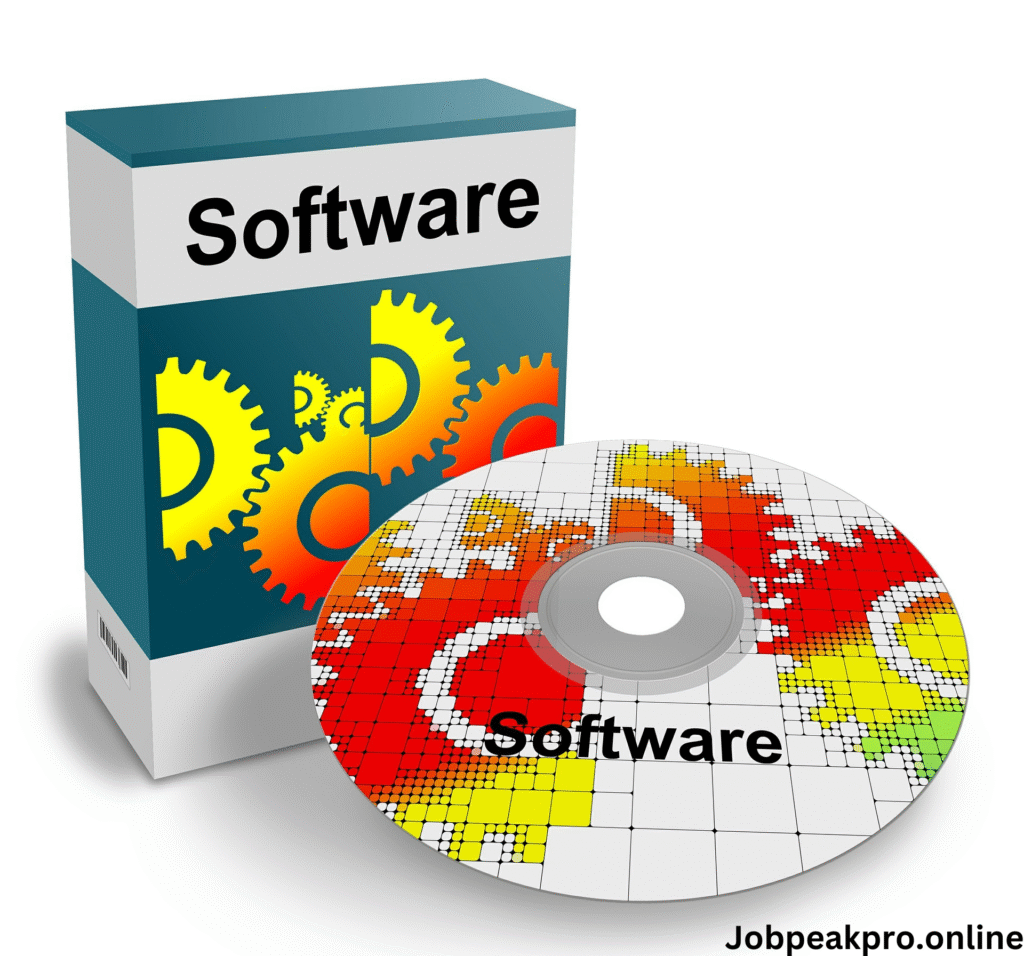Cyber specialized software professions are growingly important in the always changing field of technology. The demand for skilled software professionals with specialty knowledge is at an all-time high as cybersecurity concerns becoming more sophisticated. Businesses now require experts that grasp the complex link between software development and cybersecurity, not only generic programmers. The skills needed, industry need, career routes, and how to enter this profitable sector are discussed in this article together with what cyber specialty software jobs involve.
What are niche software jobs?
Cyber niche software jobs are specialized occupations combining cybersecurity concepts with parts of software development. These positions demand a thorough awareness of secure software techniques, encryption methods, threat detection, and risk reducing; they are not your typical IT employment.
Among these roles are:
Safe computer programmers
Engineers of application security
Architects of cybersecurity tools
Developers of penetration testing tools
Those who create malware analysis tools
Developers in DevSecOps
Blockchain security programmers
Experts in IoT security tools
These roles commonly find themselves in sectors like finance, healthcare, defense, and tech startups concentrated on privacy and security where data protection and system integrity are very vital.
Why Demand Cyber Niche Software Jobs?
Several elements contribute to the explosion of demand for cyber specialized software jobs:
Rising ransomware, phishing, and zero-day attacks call for software that can withstand cyber threats from first hand.
Governments all across have instituted data protection rules including GDPR, HIPAA, and CCPA. Organizations today have to show that their software follows these guidelines, which drives demand for safe development methods.
Turning to cloud computing, the demand for safe cloud-native apps rises as companies shift to the cloud. Cyber specialty roles assist companies protect infrastructure, APIs, and cloud workloads.
Edge devices and IoT growth are especially prone to be vulnerable. Crucially are software developers able to create safe hardware and communication protocols.
AI and Automation in Cybersecurity: To create and sustain intricate algorithms and data pipelines securely, AI-driven threat detection systems call for specific knowledge of software development.
Top Skills Demand for Jobs in Cyber Niche Software
Professionals working in a cyber specialty software role must combine cybersecurity knowledge with software engineering ability to flourish. These include:
1. Computer Languages
Understanding safe coding techniques in widely used languages including:
For low-level systems and embedded development, C/C++
Python for security tools, automation, and scripting—for tools
Java (for business-level safe applications)
JavaScript/TypeScript (for safe web development)
2. Standardized Security Frameworks
Writing compliant and safe software depends on an awareness of frameworks as OWASP, NIST Cybersecurity Framework, and ISO 27001.
3. Risk Assessing and Threat Modeling
One in great demand is the ability to foresee possible hazards and create countermeasures into software architecture.
4. Ciphering and Encryption
Understanding of SSL/TLS, AES, RSA, and safe implementation techniques for cryptographic processes.
5. DevSecOps: Secure Development
Experience including security into CI/CD systems to guarantee consistent and automated security checks.
6.malware analysis and reverse engineering
Essential for developers designing cybersecurity solutions or antivirus programs is knowledge.
7. Safety in the Cloud
Particularly with IAM, safe storage, and network security settings, knowledge with platforms including AWS, Azure, and Google Cloud is invaluable.
Occupational Routines in Cyberniche Software
These are some typical career paths within the cyberniches in software:
1. Safe Writer of Software
works on creating attack-resistant software applications. Calls for vulnerability assessments, static code analysis, and code audits.
2: Engineer in Security Automation
Builds automated threat response, penetration testing, and vulnerability scanning systems.
Tool Developer for Penetration Testing
Designed specifically for ethical hackers, these tools let them replicate assaults and uncover system and software weaknesses.
4. Tool Developer and Researcher in Security
investigates new vulnerabilities and creates tools to exploit or fix them working with academia or cybersecurity companies.
5. IoT Engineer on Security
Focused in device and embedded system security. Deals with firmware creation, safe boot techniques, and safe communication methods.
6. DevSecOps Engineer
Including security tests into the DevOps process guarantees that software is always under constant vulnerability detection.
7. Developer of Blockchain Security
Designs blockchain systems, distributed apps (DApps), and smart contracts with an eye toward exploit avoidance.
How to Land Cyber Niche Software Jobs
Breaking into cyber specialized software jobs calls for deliberate education and skill-building. Starting here is:
1. Obtain the Appropriate Instruction
Usually, one either needs a degree in computer science, cybersecurity, or software engineering. Many roles, nevertheless, also welcome boot camp grads with prior experience.
2. Get Certificates
Certifications increase respect. Among the important ones are:
CEH, certified ethical hacker
OSCP, or offensive security certified professional
CISSP, Certified Information Systems Security Professional
GIAC Programmer in Secure Software (GSSP)
Certified Security Specialist from AWS
3.Create a portfolio.
Create or help to produce open-source plugins, tools, or libraries. Show off your safe coding skills with GitHub projects.
4. Keep Current.
Track cybersecurity news, compete in Capture the Flag (CTF), and support security communities like OWASP or Hack The Box.
5. Obtain Experience
Start with cybersecurity internships or general software development and progressively move to hybrid roles.
Top Companies Hiring for Jobs in Cyber Niche Software
Many companies give cyber specialized software talent top importance. These consist in:
Palo Alto Nets, CrowdStrike, Check Point, FireEye: Cybersecurity Companies
Tech Stars: Google, Microsoft, Amazon, IBM
Among defense contractors are Raytheon, Lockheed Martin, Northrop Grumman.
Banking and finance include JPMorgan Chase, Goldman Sachs, Capital One.
Healthcare providers include UnitedHealth Group, Cerner, Epic Systems.
Startups: Many of them concentrate just on cybersecurity applications.
Additionally popular are remote work choices; several firms provide worldwide roles for outstanding people.
Salary Ant expectations
Cyberniches in software jobs pay quite competitive salaries. Industry data indicate:
Entry-Level Secure Developer: $85,000 – $110,000
Engineer in Mid-Level Application Security: $120,000–$150,000
Senior Security Software Architect: $160,000 – $200,000 plus
Consultants and freelancers often pay $80–$200 per hour based on expertise.
The great degree of responsibility involved in these positions also usually results in bonuses, stock options, and other benefits.
Last Notes
Future resides at the junction of cybersecurity and software development. A profitable and mission-critical part of the computer sector, cyber specialized software employment are found in The demand for experts able to create scalable, safe, and effective code will only grow as digital transformation speeds forward.
Learning both coding and cybersecurity is now a competitive advantage for job applicants, not a choice. Hiring cyber-aware engineers for companies is about innovation and trust as much as protection.
This is the ideal moment to make investments in your future and investigate the several, fulfilling prospects in cyber specialized software jobs.
Leave a Reply